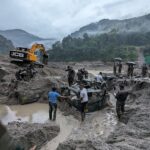Reckless driving is a major cause of car accidents, leading to dangerous behaviors such as excessive speeding, aggressive lane changes, and tailgating. These actions significantly increase the risk of collisions by reducing your reaction time to sudden obstacles and creating high-stress situations on the road. In fact, statistics indicate that reckless driving is responsible for about 30% of all accidents, often impacting innocent victims.
Young drivers, especially those aged 16 to 24, are at a higher risk of engaging in reckless driving. Emotional factors like anger and peer pressure can also intensify these dangerous behaviors. By understanding these dynamics and consulting a car lawyer in Philadelphia, you can take steps to stay safer on the road and manage potential risks more effectively.
Definition of Reckless Driving
Reckless driving is a term that encompasses a range of dangerous behaviors behind the wheel, including excessive speeding, aggressive lane changes, and tailgating. These actions aren’t just irresponsible; they violate driving laws designed to maintain safety on the roads.
According to the National Highway Traffic Safety Administration (NHTSA), reckless driving contributes to nearly 33% of all traffic fatalities annually. This statistic underscores the severity of the issue and highlights the need for stricter enforcement of driving laws.
You should understand that reckless driving isn’t merely a subjective label; it’s defined legally in many jurisdictions. Typically, it involves operating a vehicle with willful disregard for the safety of others.
This can include behaviors like racing, driving under the influence, or using a mobile device while driving. Each state has specific laws and penalties for reckless driving, which can range from hefty fines to license suspension.
Common Reckless Driving Behaviors
Driving behaviors that fall under the category of reckless driving can greatly increase the risk of accidents and injuries on the road. One prevalent example is speeding habits, where drivers exceed the speed limit considerably, reducing their reaction time to sudden obstacles.
Aggressive maneuvers, such as weaving in and out of traffic, further heighten the danger, as they can catch other drivers off guard and lead to collisions.
Tailgating practices, or following too closely behind another vehicle, create a high-stress environment and drastically reduce stopping distance. This behavior often results in rear-end accidents, especially if the lead driver brakes suddenly.
Additionally, improper lane changing without signaling can confuse fellow drivers, leading to side-swipe incidents and loss of control.
Distraction techniques, such as texting or adjusting the radio, divert your attention from the road, making you less aware of your surroundings.
Finally, road rage, characterized by aggressive driving responses fueled by anger, can escalate into dangerous confrontations, increasing the likelihood of accidents.
Statistics on Car Accidents
Car accidents remain a vital public safety concern, with statistics revealing alarming trends. In the United States, approximately 38,000 people die in car accidents each year, a figure that highlights the urgency of addressing reckless driving behaviors.
Recent data shows that driver demographics play an essential role in these trends. For instance, young drivers, particularly those aged 16 to 24, are greatly overrepresented in accident statistics. They account for nearly 25% of all motor vehicle fatalities, often due to high-risk behaviors like speeding and distracted driving.
Moreover, the National Highway Traffic Safety Administration reports that nearly 30% of all traffic fatalities involve intoxicated drivers. This statistic emphasizes the intersection between reckless driving and severe outcomes.
In urban areas, the prevalence of reckless driving behaviors tends to be higher, further exacerbating car accident trends. You might find it eye-opening that certain regions experience higher accident rates, often linked to population density and traffic patterns.
Understanding these statistics can empower you to make safer choices on the road. By being aware of the demographics and trends associated with car accidents, you can better navigate potential risks and contribute to safer driving environments.
Psychological Factors at Play
Understanding the psychological factors that contribute to reckless behavior can shed light on why certain drivers take unnecessary risks. One key factor is risk perception, which varies greatly among individuals. Some drivers may underestimate the dangers of speeding or aggressive maneuvers, believing that they’ve superior skills or that accidents won’t happen to them. This distorted risk perception can lead to a false sense of security, prompting them to engage in dangerous driving.
Emotional triggers also play an important role. Stress, anger, or excitement can influence a driver’s decision-making process. For instance, if you’ve just experienced a frustrating day, you might drive aggressively as a form of emotional release, disregarding the potential consequences. Research shows that drivers who frequently experience these emotions are more likely to engage in reckless behaviors, which can escalate the likelihood of accidents.
Moreover, social influences, such as peer pressure or a desire to impress others, can amplify these emotional triggers. When you’re surrounded by friends who encourage fast driving, your willingness to take risks increases.
Impact on Innocent Drivers
The devastating impact of reckless driving extends far beyond the irresponsible driver, often leaving innocent victims in its wake. When you find yourself in a collision caused by such behavior, the victim experiences can be both immediate and long-lasting. Statistics show that approximately 30% of car accidents involve reckless driving, meaning that many individuals like you’re susceptible to these incidents.
In the aftermath, emotional trauma can become a significant burden. Survivors may face anxiety, depression, or post-traumatic stress disorder (PTSD) as they navigate the psychological ramifications of the accident. A study revealed that around 50% of victims report heightened fear when driving again, illustrating how deeply these experiences affect your daily life.
Moreover, the financial toll can add to the emotional strain. You might deal with medical bills, vehicle repairs, and lost wages, leading to a cycle of stress and frustration.
It’s crucial to recognize that the consequences of reckless driving don’t just affect the driver; they ripple through the lives of innocent individuals. Understanding these impacts can help emphasize the need for responsible driving to protect everyone on the road.
Legal Consequences of Reckless Driving
Facing legal consequences for reckless driving can profoundly impact your life. When you’re charged with reckless driving, you may face severe penalties involved, including hefty fines, mandatory community service, or even imprisonment. These penalties can vary considerably based on your jurisdiction and the nature of your traffic violations.
Moreover, the insurance implications can be severe. Your insurer might classify you as a high-risk driver, leading to increased premiums or even denial of coverage. This can complicate your financial situation, especially if you rely on your vehicle for daily activities.
In court proceedings, you might explore legal defenses, but the burden of proof often lies with you. If convicted, you may face a license suspension, which can hinder your mobility and employment opportunities. Additionally, a reckless driving conviction can result in a permanent criminal record, affecting your future job prospects and personal relationships.
Lastly, liability issues may arise if your reckless behavior leads to an accident. You could be held financially responsible for damages, further complicating your legal situation and straining your finances.
Understanding these consequences is essential for anyone facing reckless driving charges.
Strategies for Prevention
Preventing reckless driving requires a multifaceted approach that addresses both individual behavior and broader societal influences. One effective strategy is implementing awareness campaigns that highlight the dangers of reckless driving. Research shows that targeted campaigns can notably reduce incidents; for instance, a study found that communities with ongoing awareness initiatives experienced a 20% decrease in reckless driving behaviors over two years.
In addition to awareness, enhancing driver education is essential. Extensive programs that focus on defensive driving techniques and the consequences of reckless behavior can foster responsible driving habits. Statistics indicate that drivers who undergo rigorous education are 30% less likely to engage in risky driving.
Furthermore, integrating technology can aid in prevention. Apps that monitor driving patterns and provide feedback can empower drivers to correct reckless tendencies.
Lastly, collaboration with law enforcement to enforce stricter penalties for reckless driving can deter potential offenders.
Frequently Asked Questions
What Age Group Is Most Likely to Engage in Reckless Driving?
Teen drivers are most likely to engage in reckless driving due to lower risk perception. They’re often overconfident, underestimate dangers, and lack experience, making them more prone to risky behaviors behind the wheel.
Are There Specific Times When Reckless Driving Incidents Increase?
Reckless driving incidents often spike during holiday weekends and nighttime driving. You’ll notice increased risks as drivers tend to engage in risky behaviors, influenced by celebrations or reduced visibility, which heighten the chances of accidents.
How Does Weather Influence Reckless Driving Behaviors?
Weather conditions greatly impact your driving behavior. Rain or snow can create distractions, reducing your focus and leading to reckless decisions. Understanding this influence helps you prioritize safety and avoid potential accidents during adverse weather.
What Role Does Peer Pressure Play in Reckless Driving?
Peer influence considerably impacts reckless driving. You might feel compelled to meet social expectations, pushing you toward dangerous behaviors. Studies show that friends and social circles often drive individuals to take unnecessary risks behind the wheel.
Can Reckless Driving Habits Be Changed Effectively Through Education?
Yes, education effectiveness can drive behavioral change in reckless driving habits. When you engage with informative programs and real-life scenarios, you’re more likely to understand the consequences and adjust your driving behavior accordingly.
Conclusion
In summary, reckless driving greatly increases the risk of car accidents, jeopardizing not just the reckless driver but also innocent road users. With data showing that aggressive behaviors contribute to a substantial percentage of collisions, it’s clear that addressing these actions is essential. By understanding the psychological factors and implementing effective prevention strategies, we can reduce the prevalence of reckless driving and enhance road safety for everyone. The responsibility lies with each driver to prioritize caution and awareness.













